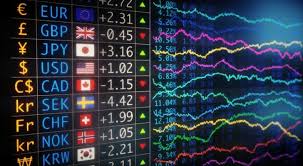
Forex prop trading, short for proprietary trading, has gained traction in the finance world over recent years. This innovative approach allows traders to leverage the capital of established firms, and they often benefit from a more structured environment than traditional retail trading. For many traders, forex prop trading represents an exciting opportunity to apply their skills without risking their personal funds. Additionally, many traders rely on forex prop trading Bangladeshi Trading Platforms to access the necessary tools and resources to thrive in this competitive field.
What exactly is forex prop trading? Essentially, prop trading involves trading financial instruments, particularly currencies, on behalf of a trading firm or proprietary trading company. This distinct structure differentiates it from conventional trading, where individuals utilize their own capital to engage in the markets. In prop trading, traders get to utilize a firm’s capital to execute trades, allowing them the potential to earn a share of the profits generated. This business model creates an attractive incentive structure for both traders and firms alike.
There are numerous advantages to pursuing a career in forex prop trading. First and foremost, traders are provided with access to significantly higher capital than what they could manage personally. This means larger orders and the potential for amplified returns, especially in the highly volatile forex market. Additionally, many proprietary trading firms offer their traders superior access to trade execution technology, resources, and support, which can enhance overall trading performance. Furthermore, with the backing of a firm, traders have the possibility to develop their strategies within a collaborative environment, gaining insights and support from seasoned professionals.
However, it’s essential to understand that forex prop trading is not without its risks and challenges. The reliance on a firm’s capital means that traders are often subject to strict performance requirements. Traders must consistently meet specific profitability metrics to continue their role with the firm, leading to high-pressure situations where the stakes are elevated. Moreover, traders may also experience restrictions on their trading style, as firms might prefer particular strategies or risk management approaches. This scenario can stifle creativity and lead traders to feel pigeonholed while trying to achieve optimal performance.
Another aspect of forex prop trading that requires careful consideration is the selection of a trading firm. Not all proprietary trading firms are created equal, and the choice of which firm to partner with can significantly impact a trader’s success. Potential traders must conduct thorough research into firms before committing their efforts. Attention should be paid to the firm’s reputation, trading platform, and support services offered. Moreover, obligations related to profit sharing and capital allocation should also be scrutinized closely before entering into any agreements.

Successful forex traders who work at proprietary trading firms often exhibit a relentless pursuit of education and skill development. The forex market is highly dynamic, and staying ahead of trends, news events, and technical patterns is critical for long-term success. Many prop traders are lifelong learners; they engage in workshops, webinars, and online courses to hone their skills. Trading is an evolving field, and consistent learning allows traders to adapt and develop better strategies over time.
One of the first steps for individuals interested in entering the world of forex prop trading is to build a solid foundation in forex trading principles. This includes understanding currency pairs, pips, leverage, margin trading, and technical analysis. Many traders find that starting as retail traders before transitioning to prop trading provides them with essential insights and experience. By trading independently, they can refine their strategies and develop a clear understanding of market dynamics before taking on the responsibilities associated with prop trading.
Aspiring traders should also familiarize themselves with various trading strategies that align with the objectives and risk tolerance of their chosen proprietary trading firm. Some firms prioritize high-frequency trading, while others may focus on swing trading or long-term trends. Identifying a trading style that aligns with both the individual’s strengths and the firm’s goals is crucial for placing oneself in a favorable position.
Networking plays a significant role in the world of forex prop trading. Many firms value recommendations and referrals from current traders or reputable sources in the industry. Building relationships with other traders can open doors to potential opportunities and provide valuable insights into different firms. Attending trading conferences, forums, and community events online can also help aspiring traders connect with others who share their passion and ambition in the forex markets.
In addition to networking, having a robust psychological framework is essential for success in forex prop trading. Handling losses, staying disciplined, and managing emotions are critical components of a trader’s mindset. Many prop traders invest time into mental preparation and develop routines that help them remain focused and resilient in challenging market conditions. Implementing proper risk management strategies not only enhances a trader’s performance but is also a significant factor in securing their position within a proprietary trading firm.
In conclusion, forex prop trading presents a unique opportunity for aspiring traders to engage in the markets without risking personal capital, while also tapping into the resources and support provided by established firms. As with any endeavor in the financial world, being well-informed and prepared is essential for success. While the path may be challenging, the potential rewards make forex prop trading an attractive pursuit for those willing to invest the required time and effort. With the right mindset, strategic planning, and a commitment to continuous learning, traders can find success within this dynamic landscape.